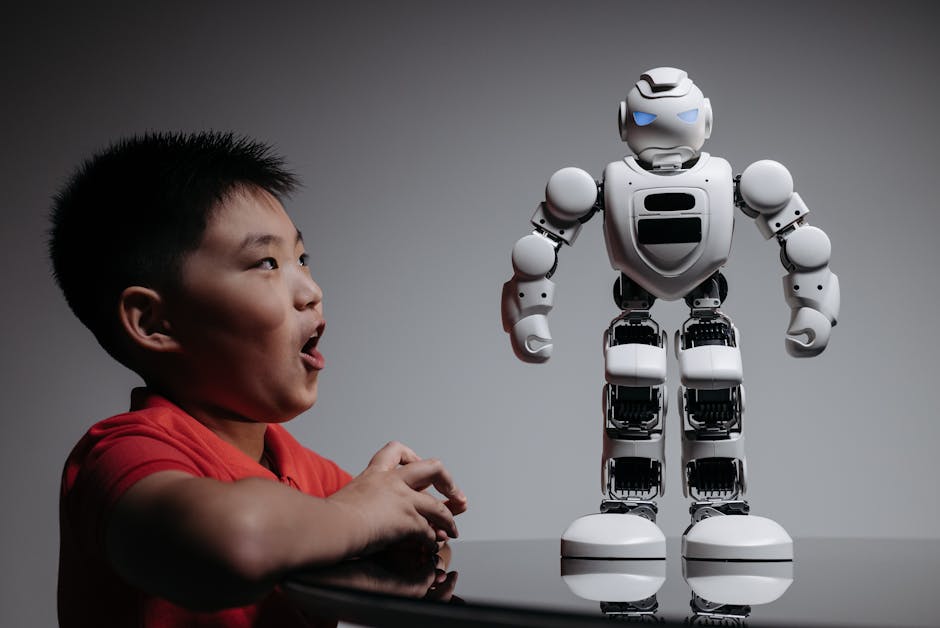
The Rise of Generative AI: A Game-Changer in the Tech Landscape?
Let's talk about Generative AI, a buzzword that's been making headlines for its transformative potential across various sectors. In essence, Generative AI is a subset of artificial intelligence that uses machine learning algorithms to generate new data, be it text, images, audio, video, or even code, based on the patterns and structures it learns from existing datasets. It's like having a superpowered creative engine, capable of churning out novel and often human-like outputs.
Think of ChatGPT, the conversational AI that can compose emails, write stories, and even answer your questions in a surprisingly coherent and engaging way. Or DALL-E, the image generator that can create intricate visuals based on your textual prompts, from a photorealistic portrait to a fantastical landscape. These are just two examples of how Generative AI is already making its mark on the world.
The Impact of Generative AI: A Multifaceted Revolution
Generative AI is more than just a fancy tech toy. It's fundamentally changing the way we work, create, and even think. Here's a glimpse into its multifaceted impact:
1. Creative Content Generation
Generative AI is opening up a whole new world of possibilities for creative content creation. It's not just about automating tasks; it's about enabling individuals and businesses to create content that was previously out of reach.
- Content Marketing: Imagine crafting compelling blog posts, website copy, and social media content with the help of AI, saving time and effort while generating fresh ideas.
- Art and Design: Generative AI is revolutionizing art and design, allowing artists to explore new styles and techniques, and generating unique imagery for various applications.
- Music and Video: From composing music to creating realistic videos, Generative AI is pushing the boundaries of creative expression.
2. Scientific Advancements
Generative AI is not just about creative pursuits; it's also driving significant advancements in scientific research.
- Drug Discovery: AI can generate new drug candidates and optimize existing ones, accelerating the process of developing life-saving medications.
- Materials Science: Generative AI can help design novel materials with specific properties, leading to breakthroughs in fields like energy storage and electronics.
- Climate Modelling: By generating complex simulations, Generative AI can help understand climate change better and develop strategies for mitigating its effects.
3. Transforming Industries
The impact of Generative AI extends beyond individual applications; it's fundamentally transforming entire industries.
- Healthcare: AI-powered tools can generate personalized treatment plans and assist doctors in diagnosing diseases more accurately.
- Education: AI can create customized learning materials and provide personalized tutoring, enhancing the learning experience for students.
- Finance: Generative AI can analyze financial data to identify investment opportunities and predict market trends.
The Promise and Peril of Generative AI
Generative AI holds immense promise, but like any powerful technology, it also comes with its share of challenges.
1. Ethical Concerns
As Generative AI becomes more sophisticated, ethical considerations are paramount.
- Deepfakes: The ability to generate realistic images and videos raises concerns about the spread of misinformation and the manipulation of public opinion.
- Bias and Discrimination: AI models trained on biased data can perpetuate existing societal prejudices, leading to unfair outcomes.
- Job Displacement: The automation of creative and analytical tasks raises concerns about job displacement in various sectors.
2. Technical Challenges
Despite its rapid advancements, Generative AI faces several technical challenges:
- Control and Interpretability: It can be difficult to control the output of Generative AI models and understand the rationale behind their decisions.
- Data Dependence: The performance of Generative AI models heavily depends on the quality and quantity of training data, making it prone to biases and limitations.
- Computational Resources: Training and deploying complex Generative AI models requires significant computational resources, limiting accessibility and affordability.
Navigating the Future of Generative AI
As Generative AI continues to evolve, it's crucial to approach it with a balanced perspective. We must leverage its potential to address pressing societal challenges and mitigate its potential risks.
“Artificial intelligence is a powerful tool, but it is not a magic bullet. We need to use it responsibly and ethically, and we need to be aware of its limitations.” - Dr. Fei-Fei Li, Professor of Computer Science at Stanford University
A responsible approach to Generative AI requires:
- Transparency and Explainability: Developing AI models that are transparent in their decision-making process, allowing humans to understand their logic.
- Regulation and Oversight: Establishing clear regulations and ethical guidelines to ensure responsible development and deployment of Generative AI.
- Public Education: Promoting awareness and understanding of Generative AI among the public, fostering informed discussions about its impact and implications.
Generative AI is a powerful force that is shaping the future of technology and society. By embracing its potential while navigating its challenges, we can unlock its transformative power for the betterment of humanity.
Space for advertisement
TECHNOLOGY
Nov 10, 2024
The Rise of Generative AI: A Game-Changer in the Tech Landscape?
Generative AI is revolutionizing industries, from creative content to scientific breakthroughs.

